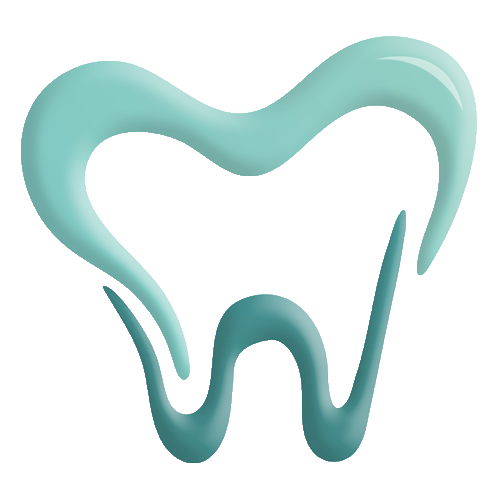Let’s talk mouthwash! I know it’s always so confusing when you’re standing in the oral health care aisle at a store and you look at the myriad of bottles of colorful mouthwash, wondering which one is right for you. Let me break it down so you can get a better understanding of what is available OTC.
Manufacturers divide OTC mouthwashes into three main categories:
1.) Fluoride
2.) Antiseptic
3.) Whitening
Fluoride Mouthwashes:
Fluoride mouthwashes, which are usually purple in color, are also known as “anti-cavity” because they usually contain 0.02% sodium fluoride. Yes, fluoride is good for your teeth and prevent cavities if you are cavity prone. However, in order to get this super low concentration of sodium fluoride into your teeth, the mouthwashes are super acidic, meaning they have a low pH. Over the long term, this can damage your enamel on your teeth. In fact, one of the ingredients they use is phosphoric acid, which is what we use to etch the teeth when we do bonding on teeth. So you can imagine how strong of an acid that is!
However,the fluoride treatment that you get at a dental office usually has 10 times higher concentration of fluoride, and it usually has a neutral pH. This way right after your dental hygiene maintenance, when there is no plaque or tartar present, the fluoride has it’s best chance of permeating your enamel and strengthening your teeth, and even your gums. If I had to recommend an OTC fluoride mouthwash, it’d be the ACT mouthwash. Why? Because it has a neutral pH and has 0.05% sodium fluoride in it, almost three times that of the rest of them. Also, it has a unidose measuring system at the top of the bottle, so you can never use too much and get an overdose of the mouthwash or fluoride in it. So if you like Berry Blue, Bubblegum or Fruit Punch flavor, then go for it!
Antiseptic Mouthwashes:
The next category is antiseptic mouthwashes. These are the most commonly used, and typically you’ll feel a burning sensation when rinsing with these due to the high level of alcohol. The alcohol is in fact antiseptic, but it indiscriminately kills all bacteria in our mouth, leaving it unbalanced and therefore more susceptible to a yeast or fungal infection. Also studies have definitively shown that alcohol is a huge risk factor for oral cancer. So these mouthwashes usually have 25-27% alcohol content. This is 2-3 times what we find in a glass of wine or beer. And when you drink a glass of wine or beer, you’re simply sipping it and swallowing it. Whereas with an antiseptic mouthwash, your swishing it for 30 seconds straight, twice a day, pushing it into your oral mucosa of your cheeks and gums. Over time it’s going to cause cell mutations and then lead to oral cancer. Alcohol also has a drying effect, and a dry mouth is more prone to cavities, so be aware!
Also, another popular ingredient in antiseptic mouthwashes is Cetylpyridinium Chloride, aka CPC. This has antiseptic properties, but will stain your teeth brown. And the Eucolyptol and Thymol commonly found in antiseptic mouthwash will stain your teeth yellow. Now, these stains can be removed with a professional dental cleaning, but do you really want to be walking around with severely stained teeth from a mouthwash?
Which OTC antiseptic mouthwash would I recommend? Only one that is alcohol free for sure, but overall I don’t recommend them to my patients. If they want some fresh breath and that’s about it, then I tell them to dilute it with water, this way they get the freshening effect without the harmful side effect of the alcohol contained within. In fact this is what we do in the office to give a better flavor to the water our patients rinse with while in the dental chair.
Whitening Mouthwashes:
The final category of OTC mouthwashes is whitening. These generally have hydrogen peroxide as a whitening agent. Usually you’ll see the bottles are opaque, not translucent, so that that hydrogen peroxide doesn’t disintegrate. The level of hydrogen peroxide is minimal, but it can still be damaging to your gums. Over the years, I’ve seen so many patients who’s cheeks were peeling away on the inside of their mouths due to using a whitening mouthwash. As soon as they discontinued use of the whitening mouthwash, the pain and discomfort and peeling stopped. I do not recommend anyone use a whitening mouthwash, even if it says “Pre-brushing whitening rinse” on the bottle. These only cause sensitivity and are not as effective as you might think, especially if you have plaque and/or tartar buildup on your teeth. And for patients for have any recession, the sensitivity can be especially high. If you really want whiter teeth, then be sure to floss and brush them!
So I hoped this helped open your eyes to what’s available when it comes to OTC mouthwash. I’ve also got a Mouthwash Review video on my YouTube channel, so be sure to check it out.
Next time, I’ll discuss Natural Mouthwashes and what I recommend when it comes to that category.
Toot-a-loo,
Dr. Meli

